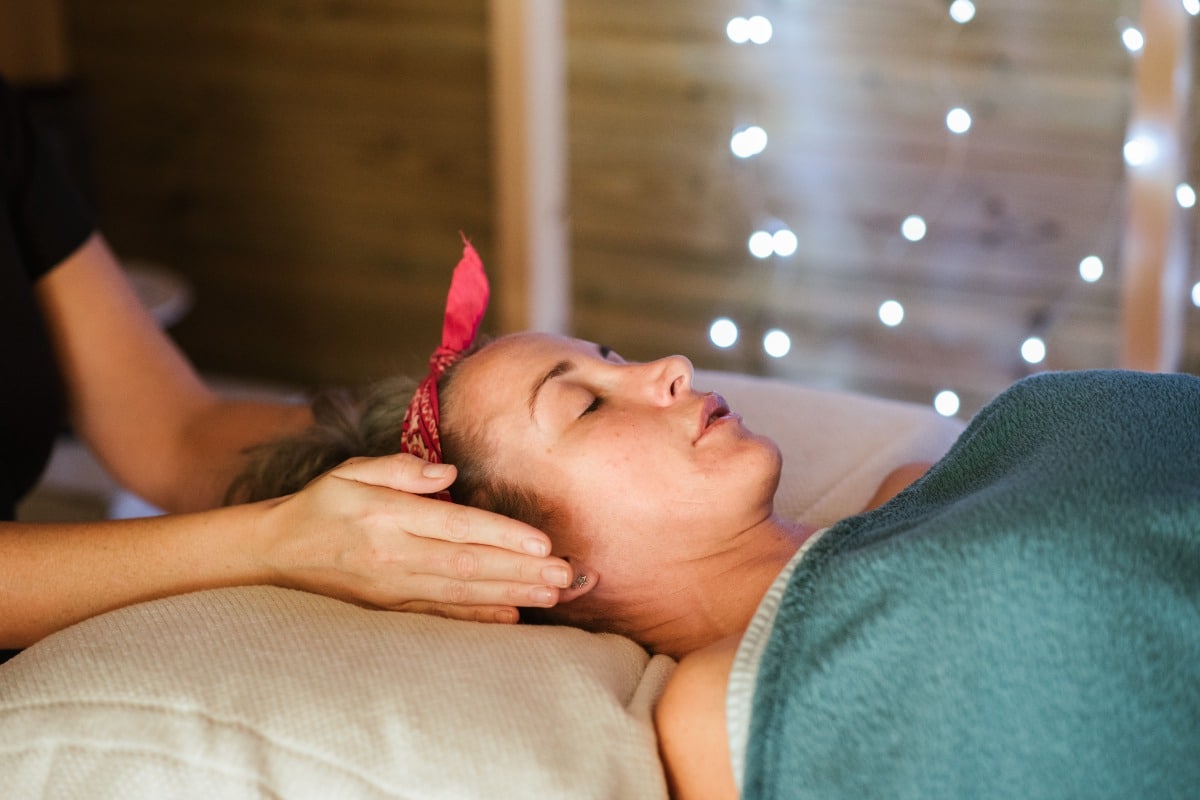Energy Medicines and Biofield Therapies Explained
Many recovery facilities use a holistic approach. This means using a combination of non-traditional or complementary and alternative medicines (CAM) and traditional treatment, or biomedical medicines, for substance use disorders (SUDs). Having a variety of treatment approaches to choose from will help you find a treatment plan that is tailor-made for your recovery goals and needs.
Many treatment approaches may seem unconventional or strange, but you won’t know how effective they are until you try them. Of course, not every treatment method will help you in your recovery, but trying out different modalities and treatment methods is all part of the process.
Complementary and Alternative Medicine
CAM refers to healing approaches and therapeutic modalities that are unconventional and generally not accepted in traditional medical care. Some examples of CAM practices include:
- Traditional Chinese medicines (herbs, tai chi)
- Mind-body interventions (meditation)
- Biologically based treatments (herbs, vitamins)
- Manipulative body-based treatments (chiropractic manipulation, massages)
- Energy therapies (biofield therapies, bioelectromagnetics-based therapies)
Biofield Therapies
There are two types of energy medicine treatments, bioelectromagnetic-based therapies, which uses pulsed magnet or alternating currents for healing purposes, and biofield therapies. In 1992, biofield was defined as a massless field that surrounds the body and can affect emotional and physical health. Biofield therapies are energy medicine based on the philosophy that your body has an energy field that can be used for therapeutic benefits. These are noninvasive therapies mediated by a practitioner who stimulates a healing response by working with your biofield.
A biofield therapy session may involve a practitioner moving their hands above or along your body with or without physical touch to activate your body’s natural healing process. It’s believed that your biofield can play a role in your mental, emotional, physical, and spiritual well-being.
Some energy therapies combined with psychological techniques are called energy psychology therapies. These therapies combine biofield practices and cognitive-behavioral techniques to help heal your mental or physical symptoms. Some uses of biofield therapy include treatment for:
- Cancer
- PTSD
- Depression
- Anxiety
- SUD
Clinical Trials of Biofield Therapies
Even though biofield therapies and other energy medicines are not considered traditional medicine, it was recorded that about 1.2 million adults received a form of biofield therapy in 2007, which rose to 3.7 million in 2012. Some biofield methods are taken more seriously than others in the medical field. For instance, therapeutic touch (TT) is recognized by some state-licensed nursing practices.
Clinical trials have reported a statistical significance in the effects of biofield therapies for pain in clients with chronic pain. These pain reductions were more significant than placebos. However, these trials aren’t perfect because most practitioners apply “energy” to the client’s biofield until they feel that their energy has changed. While most studies have shown biofield therapies to be more effective at healing psychological and physical pain than placebos, more studies need to be conducted for conclusive evidence. There is still no evidence of a biofield or knowledge of how biofield therapies work.
Reiki
One of the most popular biofield therapies is Reiki. This energy healing technique involves a therapist placing their hand on or near your body to send energy that will activate the body to heal itself and restore balance. Mikao Usui developed Reiki in the 19th century. In Japanese, Reiki means “universal life force energy.”
Reiki is an inexpensive and safe way to manage mental health symptoms, unlike some therapeutic options. Reiki has been tested on cell cultures, isolated cells, rats, and dogs. Among these tests, Reiki has consistently demonstrated therapeutic effects greater than placebos. However, like many biofield and CAM treatments, evidence is inconclusive about the effects of Reiki, and more studies need to be conducted.
Gemstone Therapy
Some biofield treatment methods use gemstones or crystals as part of a therapeutic healing process. The belief in the healing powers of gems dates back to ancient Vedic Indian and Unani Greek texts. Gemstone therapy functions on the belief that gemstones carry vibrations that channel positive energy that can change your mental and physical outlook upon wearing them.
A gemstone therapy session involves gemstones being placed on chakra points to restore balance in your body. However, the effects of gemstones on physical or mental health are relatively unexplored.
Qigong
Different types of exercises can be found in CAM treatments. Qigong is a traditional Chinese technique for optimizing energy in your mind, body, and spirit. The key elements of qigong involve:
- Deep and patterned breath exercises
- Cognitive exercises
- Visualizations
- Gentle body movements
Some research suggests that qigong can help decrease pain, improve memory, and improve depressive symptoms. There are many different types of qigong, such as:
- Tai chi
- Baduanjin
- Lizijue
- Yijin jing
- Hu yue xian
- Baduanjin
Qigong involves some techniques in yoga and meditation, like visualization, movement, and breath. These techniques are relatively common in CAM treatments.
Biofield therapies and CAM treatments can help you heal during your recovery journey. CAM treatments should not replace traditional psychotherapy treatments but can work in tandem with them. Restoration Recovery Centers offers a variety of CAM treatments, including yoga, meditation, and mindfulness. Our mental health professionals know that you are a complex person. As a complex person, you deserve various mental health tools to address your recovery needs. We want to work with you to create a treatment plan tailor-made for you. If you or someone you know is struggling with substance use disorder, please call Restoration Recovery at (888) 290-0925 to learn how we can help you find purpose during your recovery journey.






